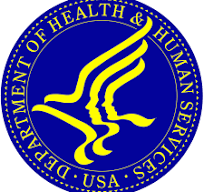In addition to his desire to halt immunizations in the US, Robert F. Kennedy Jr. is also urging cities to stop fluoridating their public water systems.
While Kennedy wouldn’t have the authority to directly stop fluoridation if confirmed as the HHS Secretary, he could alter CDC guidance so as to discourage water fluoridation, causing many communities to reconsider this essential public health measure. This is troubling, especially since his stance is, once again, not backed by evidence.
Community Water Fluoridation Evidence Review: Mel & Enid Zuckerman College of Public Health
Fluoridating water to optimal levels is one of the greatest public health achievements of the 20th century, according to the CDC. It prevents tooth decay across all age groups and socioeconomic statuses, saving families and communities money on dental care.
Ten Great Public Health Achievements 2001–2010
About Community Water Fluoridation | Fluoridation | CDC
In Arizona, where dental care access is already uneven, fluoridated water has been a key to improving overall oral health at the community level, especially for children and low-income families, who are more likely to suffer from cavities. About 58% of the state’s population benefits from fluoridated public water.
Without fluoridation, these Arizonans would face higher rates of oral disease, worse health outcomes, and increased dental costs.
Communities of 1,000 or more people see an average estimated return on investment of $20 for every $1 spent on water fluoridation.
The ROI for community water fluoridation increases as the community size increases, but even small communities save money for their residents and cities with fluoridated water save an average of $32 per person a year by avoiding treatment for cavities.
Kennedy’s pattern of promoting pseudoscientific claims is well-documented. From vaccines to water fluoridation, he often ignores mountains of scientific evidence to chase fringe ideas. His opposition to fluoridation, despite decades of research proving its safety, risks undermining public health progress.
CDC Scientific Statement on Community Water Fluoridation | CDC
If the CDC revised its guidance under Kennedy as HHS Secretary, some or many cities would likely stop fluoridating their water, leading to preventable cavities, poorer oral health, and higher healthcare costs, particularly in low-income communities.
Note: CDC does not mandate community water fluoridation. The U.S. Public Health Service (USPHS) recommended fluoride level is not an enforceable standard.
The U.S. Public Health Service (PHS) Recommendation for Fluoride Concentration in Drinking Water for the Prevention of Dental Caries is science-based guidance on the optimal level of fluoride in community water supplies.
The PHS panel that provided the recommendation considered all sources of fluoride intake and recommended 0.7 mg/L as the concentration that maximizes fluoride’s oral health benefits while minimizing potential harms, such as dental fluorosis.
